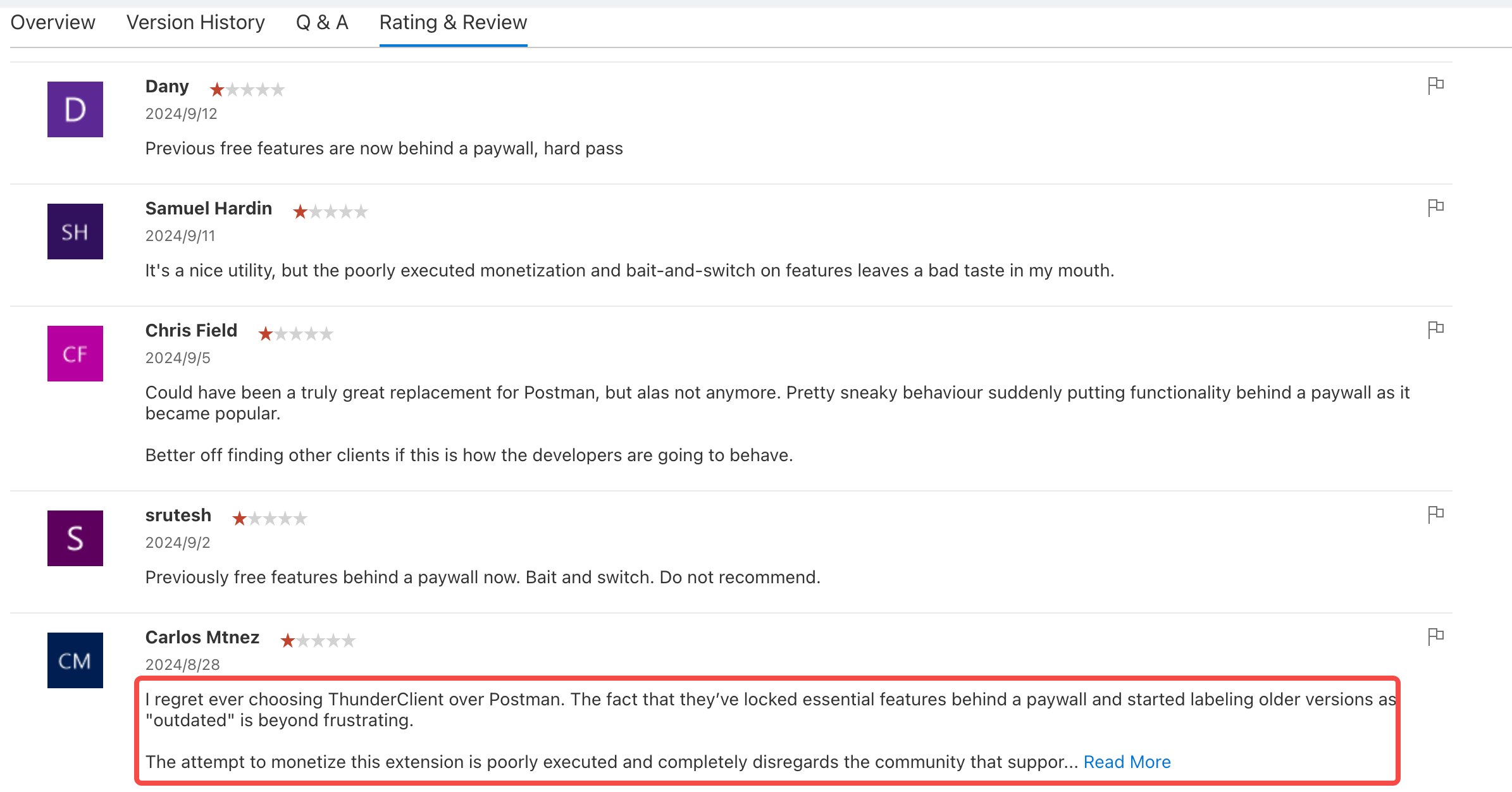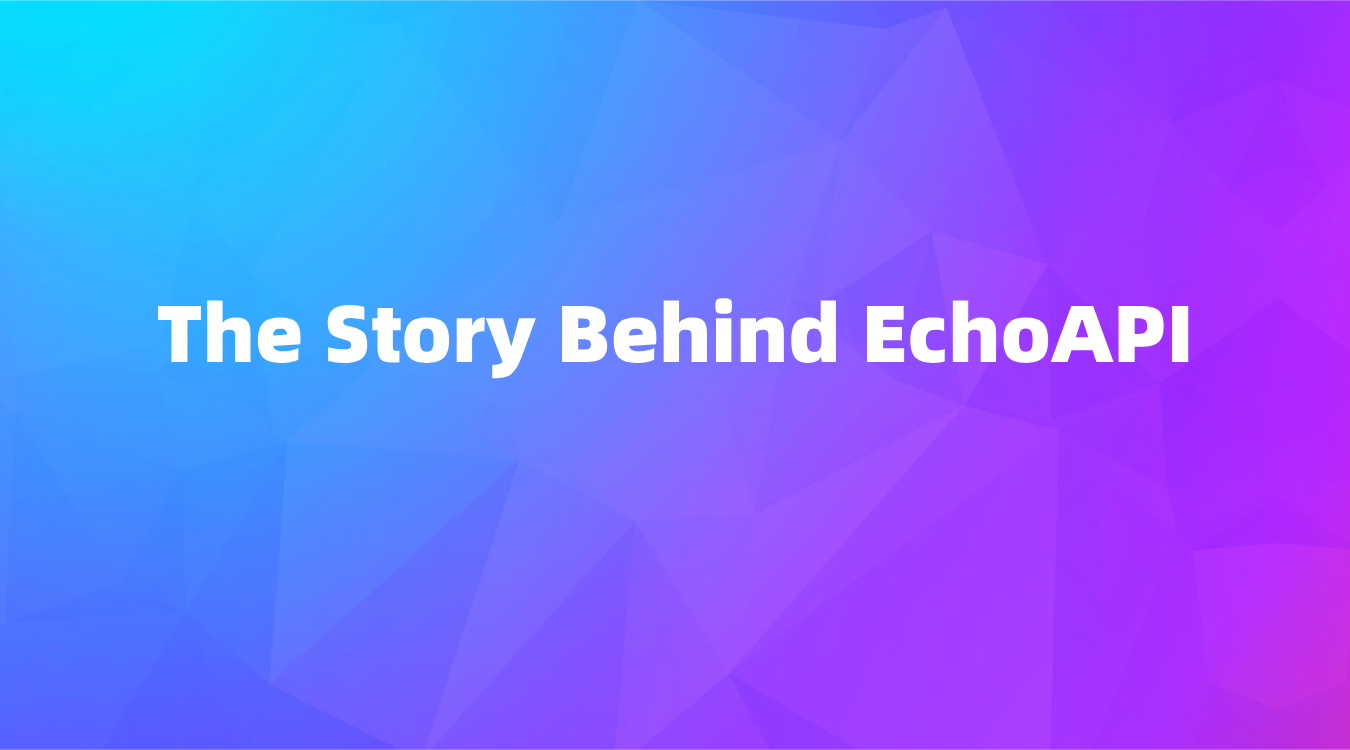The Story Behind EchoAPI for VS Code
After Thunder Client started charging in 2023, I developed EchoAPI—a free, lightweight REST API tool for VSCode.
From Devotion to Disappointment
I was a huge fan of Thunder Client and one of its earliest supporters. It was lightweight, didn't need a login, and had all the free features that made it the best REST API tool for me! But everything changed in April 2023 when they suddenly started charging money. Like many loyal users, I found I couldn't access my collections without paying. This was totally unacceptable! 😡 I don't mind developers making money, but this bait-and-switch tactic felt completely crooked.

Swearing to Create an Alternative
As a full-stack developer, I vowed to create a completely free REST API tool for personal use. After ditching Thunder Client, I teamed up with my buddy @Anderson Daniel.
Starting in October 2023, we spent a year developing EchoAPI for VSCode.
Demo Presentation
EchoAPI has a few standout features:
- No login required: Just install and start using it.
- Supports Scratch Pad: Makes jotting down quick notes and ideas super easy.
- Ultra-lightweight: It’s incredibly fast and doesn’t bloat your system.
- 100% compatible with Postman script syntax: You can switch over without having to relearn anything.
Installing EchoAPI for VS Code

Getting started with EchoAPI is a breeze. Just navigate to the VS Code Extensions Marketplace, search for EchoAPI, and hit install. No additional tools or sign-ins are necessary—everything operates straight from your VS Code sidebar.
Creating New Requests
To create a new request, start by opening the EchoAPI tab where you’ll see options for recent activities, collections, and environments. It’s pretty intuitive if you’ve used Postman before. Right-click on the collection list to create a New Collection, name it, and then right-click on the collection name to add a new request.
Running a collection
Just pick the folder you want to run, right-click, and hit "Run All." That’s it!

Variables and Environments
Just like in Postman, you can use variables and manage environments in EchoAPI. EchoAPI is 100% compatible with Postman script syntax. To activate a specific environment for your tests, just set it as active (indicated by a star next to the environment name). Importing and exporting environments is compatible with Postman 2.1.0 format and .env files.
System Variables
EchoAPI also has a set of system variables that streamline generating unique data. Prepend $ before the variable name to use them:
{{$guid}}- random UUID number{{$email}}- random email string
Script-less Testing
Testing in EchoAPI is straightforward and script-less. Choose a parameter from the dropdown menu, set your condition and value, and you’re done! There are plenty of parameters and conditions to choose from, like ResponseCode, ResponseBody, or Content-Type. You can even set values from API responses to environment variables or verify specific JSON path values.
Authentication
EchoAPI supports various authorization types, including None, Inherit, Basic Auth, Bearer, and OAuth 1.0. This is super useful for testing secured APIs that require credentials or tokens.
Useful Links
EchoAPI is continually growing, and I’ll definitely keep an eye on its progress. Here are some useful links:
Give EchoAPI a try and see how it compares to Postman for your API testing needs!
Our Promise
EchoAPI for VS Code now and always will be free for personal use. We're not going to pull a "Thunder Client" move where everything suddenly becomes paid, rendering the free version useless. You might be wondering, "How do you keep the team funded?" We're committed to ensuring that all the features you currently enjoy will always be free to use. In the future, we plan to introduce some premium features to cover the team’s costs while keeping the core functions free for individual developers.




 EchoAPI for VS Code
EchoAPI for VS Code

 EchoAPI for IntelliJ IDEA
EchoAPI for IntelliJ IDEA

 EchoAPl-Interceptor
EchoAPl-Interceptor

 EchoAPl CLI
EchoAPl CLI
 EchoAPI Client
EchoAPI Client API Design
API Design
 API Debug
API Debug
 API Documentation
API Documentation
 Mock Server
Mock Server








